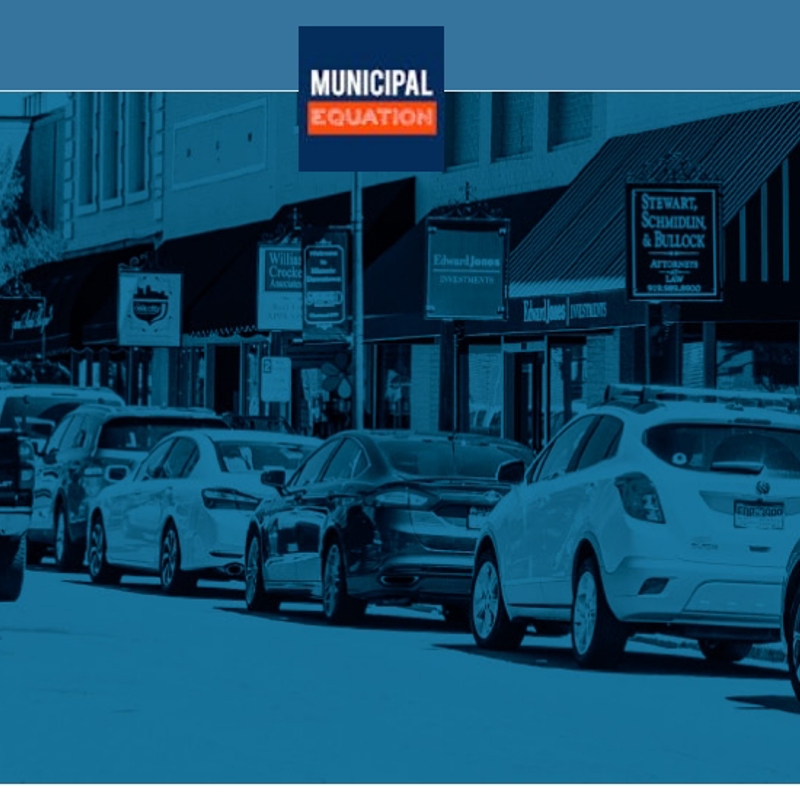State and Feds Approve Helene Assistance
Q1 2025 | Vol. 75, Issue 1
In early November, more than 200 local, state and federal government officials came together in Morganton to discuss Helene recovery efforts and identify the top priorities to assist western North Carolina communities. The event was organized by the NC League of Municipalities, the NC Association of County Commissioners (NCACC) and western NC Councils of Government, with a goal of identifying priorities regarding recovery and creating a continuing dialogue with state and federal officials.
That goal will continue to play out over the next several months, even as the Morganton meeting—which included addresses by U.S. Sen. Thom Tillis, then Gov. Roy Cooper and state legislative leaders addressed local government officials—proved a great step in connecting all involved in the disaster recovery.
The meeting came shortly after initial state assistance funding of $954 million. Despite that legislation, there remains a lot for state and federal leaders to consider as the recovery in western North Carolina continues. Those tasks include determining in more detail how state recovery funds in both the initial disaster relief funding, as well as an additional $227 million set aside after the Morganton meeting, will be spent.
Significantly for cities and towns, the state legislation contains $100 million for water and wastewater infrastructure repair loans, $100 million for cash flow loans to local governments, $75 million for federal disaster assistance matching funds, $50 million to help state and local government needs not covered by insurance and $50 million for bridge loans for small businesses.
Other provisions that may assist local governments in the affected, eligible areas will:
- Allow the Department of Environmental Quality to waive statutory fees on loans.
- Exempt some loans to local governments from requirements for Local Government Commission approval.
- Allow inactive code enforcement officials to obtain limited certification to provide inspections in the disaster area, and allow local governments to use third parties to perform plan reviews, inspections or other work involving building inspection, provided the non-employees meet licensing requirements.
- Extend various administrative deadlines related to disability, death and retirement benefits for state and local government employees.
- Allow the state treasurer to waive penalties for late retirement fund payments, provided they are not more than 90 days late.
- Establish legislative intent to appropriate funding to the Golden Leaf Foundation to provide grants to assist local governments in providing disaster relief assistance.
Meanwhile, just before Christmas, Congress agreed to a federal disaster relief plan of $100 billion, a figure that includes funding for a range of disasters across the country and programs designed to address specific needs affected by those events. Those include wildfires in western states and Hawaii and coastal damage in Florida. Roughly $29 billion is being funneled through the Federal Emergency Management Agency, while another $21 billion is being used to assist farmers with crop losses.
As the debate in Washington was unfolding regarding disaster assistance, League Executive Director Rose Vaughn Williams and NCACC Executive Director Kevin Leonard sent a letter to North Carolina’s Congressional delegation as a follow-up to the Morganton convening of local government officials. That letter included a link to a video and a document detailing the findings from the Morganton meeting, as well as a statistical look at the challenges facing western communities. Visit the League’s Hurricane Helene landing page.
As municipal leaders from western North Carolina have stated from the outset, recovery from Helene will take months and years. The Morganton meeting was just one small part of helping to bridge the needs of communities in western North Carolina with policy prescriptions that address those needs. In the months ahead, NCLM will continue to press the case for assistance that does exactly that, as well as connect communities to resources that can offer help.











